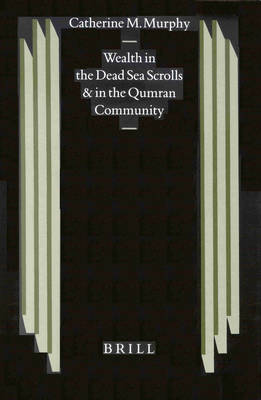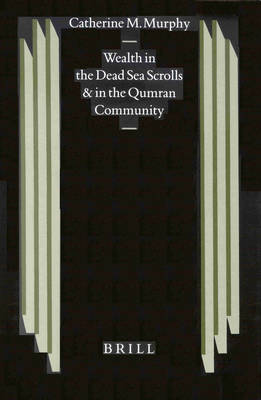
- Afhalen na 1 uur in een winkel met voorraad
- Gratis thuislevering in België vanaf € 30
- Ruim aanbod met 7 miljoen producten
- Afhalen na 1 uur in een winkel met voorraad
- Gratis thuislevering in België vanaf € 30
- Ruim aanbod met 7 miljoen producten
Zoeken
Omschrijving
This volume is concerned with exploring sectarian attitudes toward wealth and the economic practices that gave rise to and issued from those attitudes.
An introductory chapter establishes the state of the question. Three subsequent chapters focus on major sectarian texts: the Damascus Document, the Rule of the Community, and 4QInstruction A. Other sectarian and non-sectarian texts that mention wealth are discussed in a fifth chapter, while archaeological evidence from the Qumran region and contemporary documentary texts are introduced in chapters seven and eight. Finally, ancient secondary testimony on Essene economic practices is discussed.
The book breaks new ground in arguing for several biblical rationales for the practice of shared wealth. Its integration of archaeological and documentary evidence sheds surprising new light on the economic organization of the Qumran community.
An introductory chapter establishes the state of the question. Three subsequent chapters focus on major sectarian texts: the Damascus Document, the Rule of the Community, and 4QInstruction A. Other sectarian and non-sectarian texts that mention wealth are discussed in a fifth chapter, while archaeological evidence from the Qumran region and contemporary documentary texts are introduced in chapters seven and eight. Finally, ancient secondary testimony on Essene economic practices is discussed.
The book breaks new ground in arguing for several biblical rationales for the practice of shared wealth. Its integration of archaeological and documentary evidence sheds surprising new light on the economic organization of the Qumran community.
Specificaties
Betrokkenen
- Auteur(s):
- Uitgeverij:
Inhoud
- Aantal bladzijden:
- 712
- Taal:
- Engels
- Reeks:
- Reeksnummer:
- nr. 40
Eigenschappen
- Productcode (EAN):
- 9789004119345
- Verschijningsdatum:
- 18/12/2001
- Uitvoering:
- Hardcover
- Formaat:
- Genaaid
- Afmetingen:
- 167 mm x 243 mm
- Gewicht:
- 1374 g

Alleen bij Standaard Boekhandel
+ 912 punten op je klantenkaart van Standaard Boekhandel
Beoordelingen
We publiceren alleen reviews die voldoen aan de voorwaarden voor reviews. Bekijk onze voorwaarden voor reviews.








